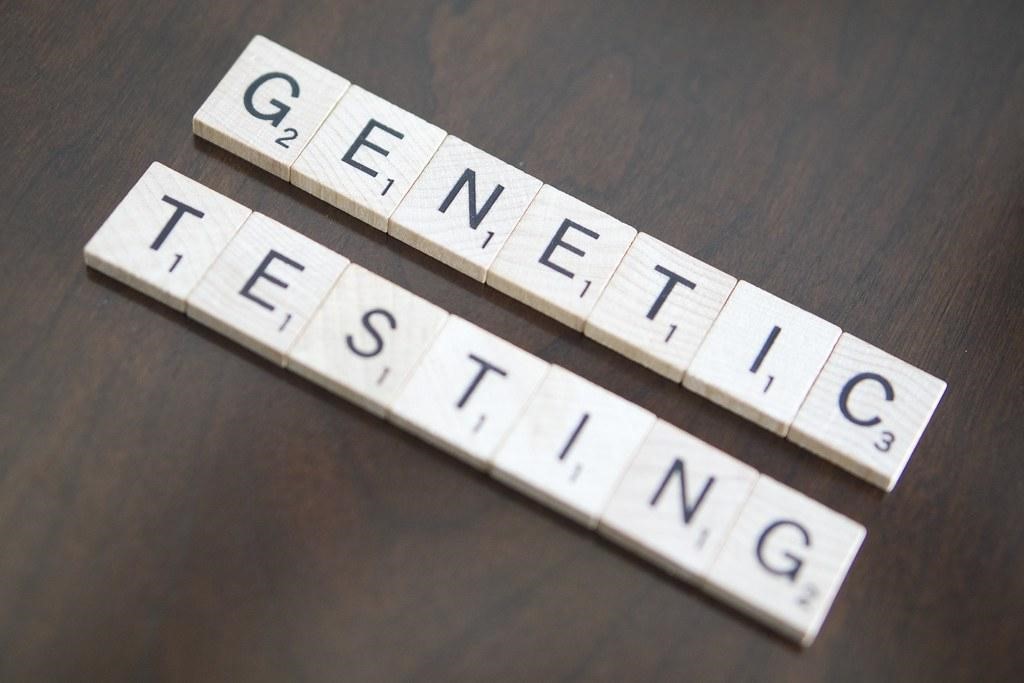Understanding the Conditions That Call for Genetic Testing to Enhance Your Health Journey

In today’s fast-paced world, our health is more important than ever. Many people are seeking innovative ways to understand their bodies better, especially regarding hereditary health conditions. Genetic testing has emerged as a crucial tool in this quest. But what exactly is genetic testing, and when should you consider it? Whether you’re a health enthusiast, a concerned parent, or a medical professional, understanding the conditions that necessitate genetic testing can empower you in your health and wellness journey.
This blog post will explore the various health conditions that may require genetic testing, the significance of family medical history, and how genetic testing can help individuals and families make informed decisions about their health. Additionally, we will highlight the role of Novalab Corp in providing comprehensive hereditary genetic (CGX) testing services and why they are a trusted partner in this significant aspect of health management.
What is Genetic Testing?
Genetic testing refers to a range of techniques used to analyze DNA, the chemical database that carries instructions for the body. By examining genetic material, healthcare providers can identify variations that may lead to specific health conditions. Genetic tests can provide valuable insights into an individual’s risk of developing certain diseases, guide treatment options, and even inform family planning decisions.
There are several types of genetic tests available, including diagnostic testing, carrier testing, prenatal testing, and predictive testing. Each of these tests serves a unique purpose and is utilized based on individual circumstances. Overall, genetic testing can reveal essential information about one’s health that could lead to early interventions or lifestyle changes.
The Importance of Family Medical History
A family medical history is a record of health information about your relatives. It can play a vital role in determining whether genetic testing is necessary for you or your family members. By understanding the health issues that run in your family, you can better assess your own risk factors.
For example, if there is a history of certain cancers, heart disease, or rare genetic disorders in your family, it may be beneficial to undergo genetic testing. This knowledge can help you and your healthcare provider make informed decisions about preventive measures, screenings, and potential treatment options.
It’s essential to gather as much information as possible when compiling a family medical history. Talk to relatives and understand their health challenges, as this data can provide critical insights into your own health risks.
Conditions That May Require Genetic Testing

1. Hereditary Cancer Susceptibility
Certain cancers have a genetic component, meaning they can run in families. Conditions like breast, ovarian, colorectal, and prostate cancers may necessitate genetic testing. If a family member has been diagnosed with one of these cancers, especially at a young age, it might be worthwhile to investigate the potential hereditary nature of these conditions.
Through genetic testing, individuals can identify mutations in genes such as BRCA1 and BRCA2, which significantly increase the risk of developing breast and ovarian cancers. These insights allow individuals to take proactive measures, such as increased surveillance or preventive surgeries.
2. Cardiovascular Diseases
Cardiovascular diseases can also have genetic links. Inherited conditions such as familial hypercholesterolemia can lead to high cholesterol levels, increasing the risk of heart disease. Genetic testing can help identify individuals at risk and allow for timely intervention.
For instance, if there’s a history of sudden cardiac events in your family, genetic testing may help pinpoint whether there are underlying hereditary factors contributing to these incidents. This enables healthcare professionals to implement effective monitoring and management strategies tailored to the patient’s unique genetic profile.
3. Neurological Disorders
Neurological disorders like Huntington’s disease, Alzheimer’s, and Parkinson’s disease often have hereditary implications. Genetic testing can help determine if you carry specific gene mutations linked to these conditions, providing critical information for planning and lifestyle adjustments.
For example, early detection of Alzheimer’s-related genes can empower individuals to consider preventive measures, engage in cognitive exercises, and participate in clinical trials focused on slowing the disease’s progression.
4. Rare Genetic Disorders
Many rare genetic disorders often go undiagnosed because they present symptoms that may mimic other conditions. Genetic testing can be particularly beneficial in these cases, helping identify rare diseases such as cystic fibrosis, sickle cell anemia, or muscular dystrophy.
With accurate diagnosis, healthcare providers can tailor treatment plans to manage symptoms effectively and improve quality of life. Furthermore, understanding a rare genetic condition can offer families critical insights into their health risks and enable informed decisions regarding family planning.
5. Prenatal Testing
Expectant parents often choose to undergo prenatal genetic testing to assess the risk of genetic disorders in their unborn child. Tests such as chorionic villus sampling (CVS) and amniocentesis can provide valuable information about potential genetic abnormalities.
This allows parents to prepare for potential challenges and make informed decisions about their pregnancy. Knowing whether a child may have a genetic condition can facilitate early interventions and support for the family.
6. Carrier Testing
Carrier testing helps individuals understand if they are carriers of specific genetic conditions that could be passed on to their children. This is particularly relevant for couples considering starting a family, especially if they have a known family history of genetic disorders.
For example, if both partners are carriers of cystic fibrosis, the likelihood of having an affected child increases significantly. Carrier testing can guide couples in making informed choices about family planning and the potential need for further testing or interventions.
7. Autoimmune Diseases
Emerging research suggests that several autoimmune diseases, such as lupus and rheumatoid arthritis, may have genetic components. While environmental factors play a role, knowing your genetic predisposition can aid in early diagnosis and management.
Genetic testing could assist in identifying risk factors for autoimmune conditions, enabling individuals to adopt lifestyle changes and seek preventive care that aligns with their genetic makeup.
8. Mental Health Conditions
The connection between genetics and mental health is increasingly recognized. Conditions such as bipolar disorder, schizophrenia, and major depressive disorder may have hereditary factors influencing their development.
Understanding your genetic predisposition to mental health conditions can prompt proactive measures in treatment and management. This knowledge encourages open conversations with healthcare professionals about potential risks and personalized care options.
The Role of Novalabcorp in Genetic Testing

When it comes to genetic testing, choosing a reliable service provider is essential. Nova Labcorp stands out as a leader in the field, specializing in hereditary genetic (CGX) testing services. Their comprehensive offerings ensure that individuals receive accurate and insightful results, guiding them in their health decisions.
Novalab corp’s CGX testing services provide valuable insights into hereditary risks, making them an ideal partner for those looking to better understand their genetic predispositions. With state-of-the-art technology and a commitment to accuracy, Novalab Corp empowers individuals to take charge of their health.
Their user-friendly process includes thorough consultations, easy-to-understand results, and ongoing support for patients navigating their genetic health journeys. This combination of expertise and accessibility makes Novalab Corp a trusted resource for genetic testing.
How to Get Started with Genetic Testing
1. Consult with Your Healthcare Provider
If you suspect you may benefit from genetic testing, the first step is to consult with your healthcare provider. They can help assess your family medical history and guide you on the most appropriate testing options based on your unique circumstances.
2. Choose a Reputable Testing Service
Once you and your healthcare provider have decided on the need for genetic testing, select a reputable service like Novalab Corp. Ensure that the provider offers the specific tests relevant to the conditions you are concerned about.
3. Understand the Implications
Before undergoing genetic testing, familiarize yourself with the possible outcomes and implications. This may involve discussing potential emotional impacts, insurance considerations, and the steps to take based on different results.
4. Participate in the Testing Process
After selecting a testing service, follow the instructions provided. The process typically involves a simple blood or saliva sample collection. Make sure you understand the timeline for receiving results.
5. Review Your Results with a Professional
Once you receive your results, review them with a healthcare professional who can help interpret the findings. They can provide guidance on any necessary next steps and help you understand the implications for your health and that of your family.
Conclusion
Genetic testing serves as a pivotal tool for understanding one’s health and making informed decisions. From hereditary cancer risks to autoimmune conditions, the insights gained from genetic testing can empower individuals and families to take proactive steps toward better health.
For health enthusiasts, parents, and medical professionals alike, understanding when to consider genetic testing is vital in the pursuit of a healthier future. Novalab corp’s hereditary genetic (CGX) testing services provide a reliable path towards these insights.
If you’re ready to take the next step in your health journey, consider scheduling a consultation and exploring the benefits genetic testing offers. Understanding your genetic predispositions not only enhances your health but also opens doors to informed decisions for you and your loved ones. So, it is essential to seek professional guidance and choose a trusted partner in genetic testing, like Novalab Corp, for accurate results and ongoing support. With the right information and resources, we can all take control of our health and make informed decisions for a better future.
Remember, knowledge is power when it comes to your health. Don’t wait until it’s too late – consider genetic testing today! So why not start your journey towards understanding your genetics with NovaLab Corp? Take charge of your health and embark on a path towards a healthier future today. Let’s work together towards a healthier tomorrow! Keep exploring new ways to improve your health through reliable sources like Novalab Corp and stay ahead of potential health challenges. Knowledge is key, and genetic testing can provide the insights needed to make informed decisions for a healthier life. Let’s take control of our health today for a better tomorrow. So don’t wait any longer – consult with your healthcare provider and explore the benefits of genetic testing with Novalab now! Spread the word about the importance of genetic testing and help others take charge of their health too. Together, we can create a healthier future for all through proactive measures and personalized care.
Stay informed, stay healthy – choose Novalab for reliable genetic testing services. Your health is in your hands!
